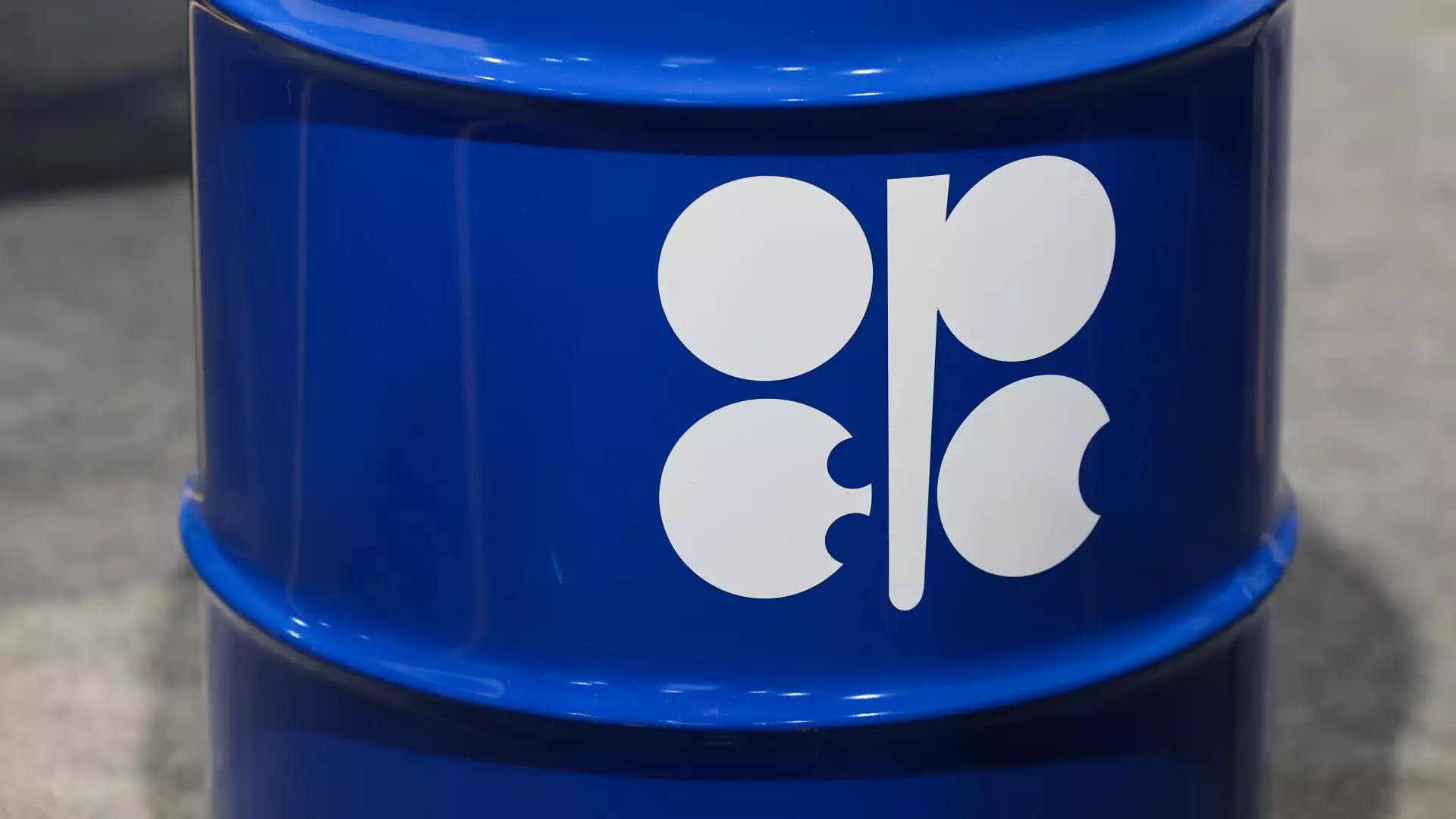In an assertive display of power, OPEC+ has once again reaffirmed its position as the world’s oil juggernaut, announcing an increase of 411,000 barrels per day for July. This decision comes amidst an unstable market, characterized by fluctuating oil prices and a precarious global economy still recovering from the pandemic’s impacts. OPEC+ has spent years carefully managing production levels, curbing supply significantly—over 5 million barrels per day—until recently. However, the latest moves signal a shift: a strategic pivot aimed not just at reclaiming lost market share but also at admonishing those within the group, such as Iraq and Kazakhstan, who have consistently over-produced.
The wisdom behind this sudden ramp-up seems questionable at best. While OPEC+’s leaders, notably Saudi Arabia and Russia, justify this increase as a necessary response to burgeoning demand and a steady economic outlook, one can’t help but wonder whether they are playing with fire. The economics of oil rely not only on production numbers but also on the delicate balance of supply and demand. Is the oil cartel so fixated on regaining a semblance of control that they have overlooked the risk of oversaturating a market already showing signs of distress?
The Market’s Reactions: A Dissonance of Fear
The direct consequence of OPEC+’s decision was palpable: U.S. crude futures experienced a jarring tumble on Friday, a precursor to the general unease reverberating throughout global oil markets. Brent crude prices dropped; concerns escalated as traders worried this increase would result in reduced prices, threatening not just OPEC+ profits but also posing a serious threat to U.S. shale producers who already operate on razor-thin margins.
Even Harry Tchilinguirian, an analyst with Onyx Capital Group, elucidated the grim reality of OPEC+’s current approach. By prioritizing market share over price stability, OPEC+ seems willing to gamble on volume at a time when volatility could spell disaster for all producers, especially those competing in the shale space. Are we witnessing a miscalculation, a dangerous gamble for the organization? With Iraq and Kazakhstan under pressure, it appears there are internal rifts, pulling focus away from an already hyper-competitive marketplace.
Geopolitical Implications: More Than Just Numbers
When analyzing these recent developments, one must not overlook the geopolitical ramifications of such moves. The intricate balance of power within OPEC+ is inherently vulnerable as countries vie to maximize their stakes in an increasingly competitive global market. The recent statements from OPEC+ indicate a shift in strategy, one that makes clear their intent to discipline errant members while simultaneously showcasing their ability to manipulate oil prices on a global scale.
The decisions made in that online meeting held by OPEC+ leaders reveal underlying strategies that may irrevocably alter the landscape. Increasing production amidst rising demand could have a ripple effect, creating fractures among member nations. Algeria’s plea for a pause in output hikes is particularly telling. It serves as a reminder that while OPEC+ operates as a cohesive unit, discord can surface when the interests of individual member nations clash. Are we witnessing the seeds of discontent taking root within the organization?
The Role of Shale Producers: A Frightening Landscape
The impact of OPEC+’s choices is not limited to its internal members; it bears significant implications for U.S. shale producers as well. These companies, already grappling with a complex landscape of low prices and uncertain demand, find themselves cornered as OPEC+ flaunts its capacity to alter the market dynamics. If oil prices remain under pressure due to increased output, many shale producers may face a grim reality—one that could even lead to bankruptcies and layoffs.
At the heart of this situation lies the question of sustainability. How long can shale producers endure the volatility induced by decisions made by an organization ostensibly indifferent to its competitors? This aggressive stance taken by OPEC+ could erode the very foundations of America’s burgeoning energy independence, a goal that attracts both bipartisan support and widespread public interest.
OPEC+’s decisions undoubtedly reshape the oil landscape, but they also expose the fraught underbelly of global oil politics, where every increase in output is a double-edged sword. By gambling on aggressive production increases, OPEC+ is not merely playing a numbers game—it’s navigating a precarious path that holds uncharted risks for the entire oil market.


Leave a Reply